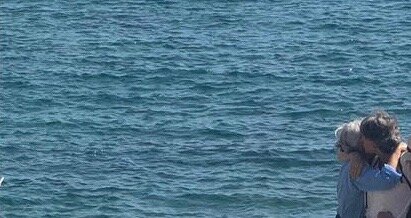Learning
“One of the staff tested positive,” she said. “We were all together last Tuesday before we closed down the restaurant.”
Silence.
“OK,” I said. “Are you afraid?”
More silence.
“OK….. let’s go there,” I said, and we started to unpack it.
We are moving into a situation with this virus where we don’t really know what’s what because we don’t have all the facts yet. Cases in Tuscany are rising and I’m trying to cherry pick from the onslaught of news that comes out each day, glean what truth I can from it all. Because if I have some facts - at least some - to anchor me, I can work from there. It’s part of how I try to keep fear from hijacking my life.
I haven’t seen a lot of reporting on what it feels like to have COVID-19 except for those extreme cases of people in hospitals on ventilators. What about lesser versions of the illness? A friend in the states who is a doctor with her own practice was very sick last week with sore throat, high fever and severe body aches. After some time she found it hard to breathe. She’s not yet 60 and - being a doctor - is well aware of her body, knew that she’d know if and when to go to the hospital. The difficulty with breathing eventually passed and she is now recovering, getting slowly better. She has been tested but expects that the kit won’t be processed due to the urgency of other cases. So we might not know for sure she has had COVID-19 but it sure looks like it to me from what they tell us about the symptoms.
“My friend in the states had this experience,” I told her. “So in the maybe unlikely case you do start to have symptoms, know that it could be like this. You could start to have issues breathing, but it doesn’t mean you have to immediately run to the hospital to be put on a ventilator. It could pass on its own. But if you felt you did need to go to the hospital… how would you get there?”
She had told me that they were saying that ambulances in London might be hard to come by.
“Then a taxi?” I asked, “Your son?”
She told me she didn’t want to expose anyone to the virus.
“Well, you’re not gonna just sit alone in your flat and suffocate. You need a plan.”
We walked each other through what each of us would do if we found ourselves getting sick. We both live alone. I told her who I would ask here in Florence to leave food at my door if wasn’t able to care for myself and she told me what could work for her. It was a good exercise. We took everything to the nth degree, tried on different things, pointed out the blind spots in each others’ thought processes, surprised each other and ourselves at what was doable and what wasn’t.
We learned and we loved. This is the gift of this time we are in.
Thinking through all of this now when we don’t need the contingency plan keeps some of the fear at bay. Because if we DO need to affront this illness we do not need to be wasting energy on being afraid if we can help it. And in the unlikely scenario that either of us fall ill and need to go to the hospital, we now know there’s a plan. That’s its own kind of safety net.
And to get to the hospital… well, there will be a discussion with family.
That’s what we all need to do. Talk to friends and family, get contingency plans in place, ones that most of us won’t ever use.
We need to learn.
And love.
